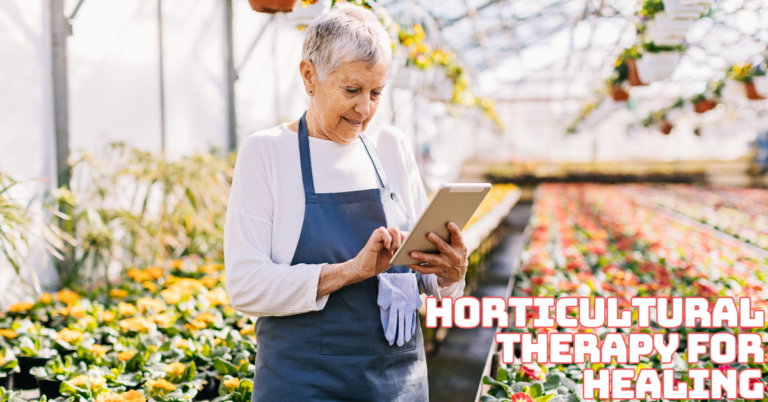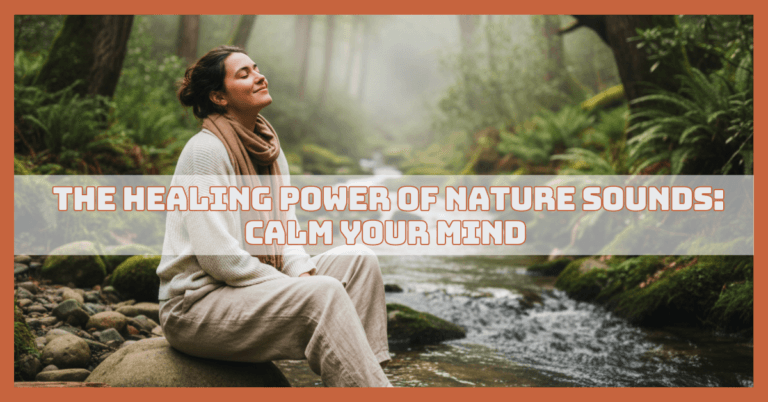How To Live A Toxin-Free Life
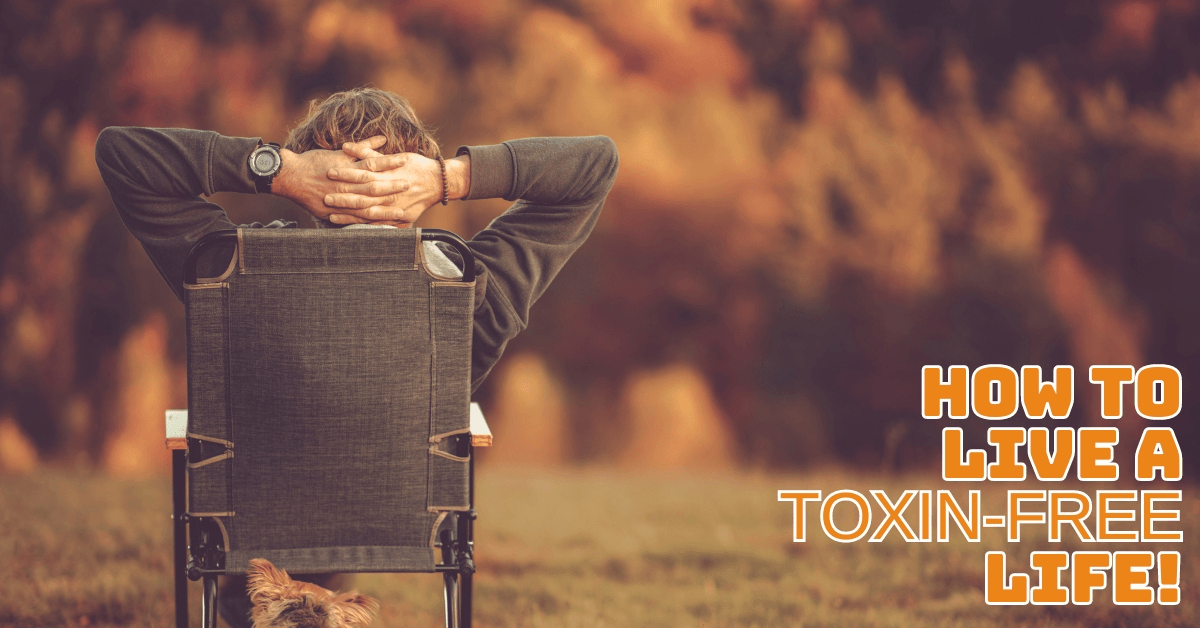
How To Live A Toxin-Free Life
Living a toxin-free life involves making mindful choices to reduce exposure to harmful substances. Every decision matters, from the food you eat to the products you use daily.
By prioritizing natural and organic solutions, you can improve overall well-being by improving your environment for yourself and your loved ones.
What Is A Toxin-Free Life?
To promote optimal health and well-being, a toxin-free life involves minimizing exposure to harmful chemicals and substances in our environment, diet, and lifestyle.
They include pollutants, synthetic chemicals, heavy metals, and processed foods, which can accumulate in the body over time and potentially cause various health issues, including hormonal imbalances, weakened immunity, and chronic diseases.
Living a toxin-free life starts with making conscious choices. Choosing organic and whole foods devoid of artificial additives, pesticides, and genetically modified organisms (GMOs) is one way to do this.
It also involves using natural and eco-friendly household and personal care products free from harsh chemicals such as parabens, phthalates, and synthetic fragrances.
Reducing exposure to environmental pollutants by using air purifiers, avoiding plastic products, and choosing sustainable materials further contributes to a toxin-free lifestyle.
Detoxifying your home environment is another crucial aspect. Regularly cleaning to reduce dust and mould, using natural cleaning agents, and ensuring proper ventilation is key to maintaining a healthier living space.
These practices support a toxin-free lifestyle and make you feel secure and safe in your home. The body's natural detoxification processes are also aided by forming healthy habits like frequent exercise, drinking enough water, and using stress-reduction and mindfulness practices.
Ultimately, a toxin-free life is about creating a balance that supports overall health and well-being. It involves making informed decisions and adopting sustainable practices that benefit individual health and contribute to the planet's well-being.
The Importance Of Choosing Toxin-Free Life
Choosing a toxin-free life is vital for several reasons, impacting personal health and the environment. Here are the key points that highlight the importance of this lifestyle:
1. Enhance Well-Being
A toxin-free lifestyle emphasizes consuming whole, organic foods and using natural products, leading to improved energy levels, mental clarity, and emotional stability.
Whole foods provide essential nutrients without harmful additives, supporting sustained energy levels and better cognitive function.
Natural products free from synthetic chemicals reduce exposure to potential irritants and allergens, contributing to clearer skin and reduced inflammation.
This holistic approach enhances physical well-being by strengthening the immune system and promoting healthier digestion, as well as supports mental health by reducing stress and improving mood stability.
2. Environmental Impact
Many everyday products contain toxins that contribute to environmental pollution when disposed of.
Choosing eco-friendly and sustainable alternatives reduces your carbon footprint and minimizes the release of harmful chemicals into ecosystems.
By supporting environmentally conscious practices, such as using biodegradable materials and reducing waste, you help preserve biodiversity and protect natural habitats.
This proactive approach ensures a cleaner environment for current and future generations, promoting sustainability and mitigating the impact of human activities on the planet's health and well-being.
3. Preventative Health Care
Adopting a toxin-free lifestyle emphasizes preventive health care by minimizing exposure to harmful chemicals that can lead to various health issues.
By proactively choosing organic foods and natural products and reducing environmental pollutants, individuals lower the risk of developing toxin-related diseases such as allergies, hormonal imbalances, and certain cancers.
This proactive approach not only supports the body's natural detoxification processes but also reduces the need for medical treatments and interventions in the future.
4. Mental Clarity And Emotional Stability
Toxins present in common items and environmental contaminants have the potential to negatively affect mental health by exacerbating symptoms such as depression, anxiety, and brain fog.
These substances may disrupt neurotransmitter function and hormonal balance, affecting cognitive function and emotional stability.
Adopting a toxin-free lifestyle involves reducing exposure to such chemicals, thereby supporting clearer thinking, improved mood regulation, and enhanced emotional well-being.
5. Enhance Physical Fitness
Regular exercise is integral to a toxin-free lifestyle as it supports overall health and well-being in several ways.
Physical activity stimulates circulation, promoting the elimination of toxins through sweat and enhancing detoxification processes in the body.
Additionally, exercise boosts metabolism, aiding in weight management and improving cardiovascular health.
When people exercise regularly, they get stronger bones and muscles, have more energy, and experience less stress.
How To Live A Toxin-Free Life
Making deliberate decisions to reduce exposure to dangerous chemicals and pollutants in daily life is necessary to live a toxin-free existence. The following fundamental ideas will help you:

1. Choose Organic Foods
Choosing organic food means no artificial fertilizers, pesticides, or genetically modified organisms (GMOs) were used to cultivate the product, including fruits and meats.
Reduced pollution, biodiversity, and soil and water conservation are the top priorities of organic agricultural operations.
Choosing organic minimizes exposure to potentially harmful chemicals and residues in conventionally grown crops and livestock.
Organic meats come from animals raised in more humane conditions, without routine antibiotics or growth hormones.
Due to the healthier soil and natural farming methods, organic foods are often richer in essential nutrients, antioxidants, and beneficial compounds.
While organic options may sometimes be more expensive, they support sustainable agriculture and contribute to overall health by reducing the intake of potentially harmful substances.
Choosing organic aligns with a commitment to personal well-being and environmental stewardship, promoting a healthier lifestyle and supporting ethical agricultural practices.
2. Choose Natural Fabrics
Selecting natural textiles over synthetic ones, including organic cotton, wool, and linen, has several advantages for the environment and human health.
Organic cotton is softer and hypoallergenic since it is grown without artificial fertilizers or pesticides, making it safer for farmers and customers.
Wool is naturally breathable and moisture-wicking, providing comfort year-round, and linen is renowned for its durability and cooling properties.
Opting for these natural fibres supports sustainable practices and minimizes the negative effects of clothes production on the environment.
Look for certifications like Global Organic Textile Standard (GOTS) for organic cotton and Responsible Wool Standard (RWS) for wool to ensure your clothing choices align with high environmental and social standards.
By choosing natural fabrics, you prioritize comfort, durability, and sustainability, contributing to a healthier planet.
3. Use Natural Household Products
Switching to natural household products involves replacing conventional cleaners, detergents, and personal care items with alternatives that use plant-based ingredients and avoid harmful chemicals like parabens, phthalates, and synthetic fragrances.
Natural products are typically biodegradable, reducing environmental impact when washed down drains.
They often come in eco-friendly packaging and are produced using sustainable practices, supporting a healthier home environment and promoting eco-conscious living.
Choosing natural household products also aligns with efforts to reduce exposure to potentially toxic substances, benefiting both personal health and environmental sustainability.
This shift encourages manufacturers to prioritize safer ingredients and contributes to the growing demand for greener, more ethical consumer goods.
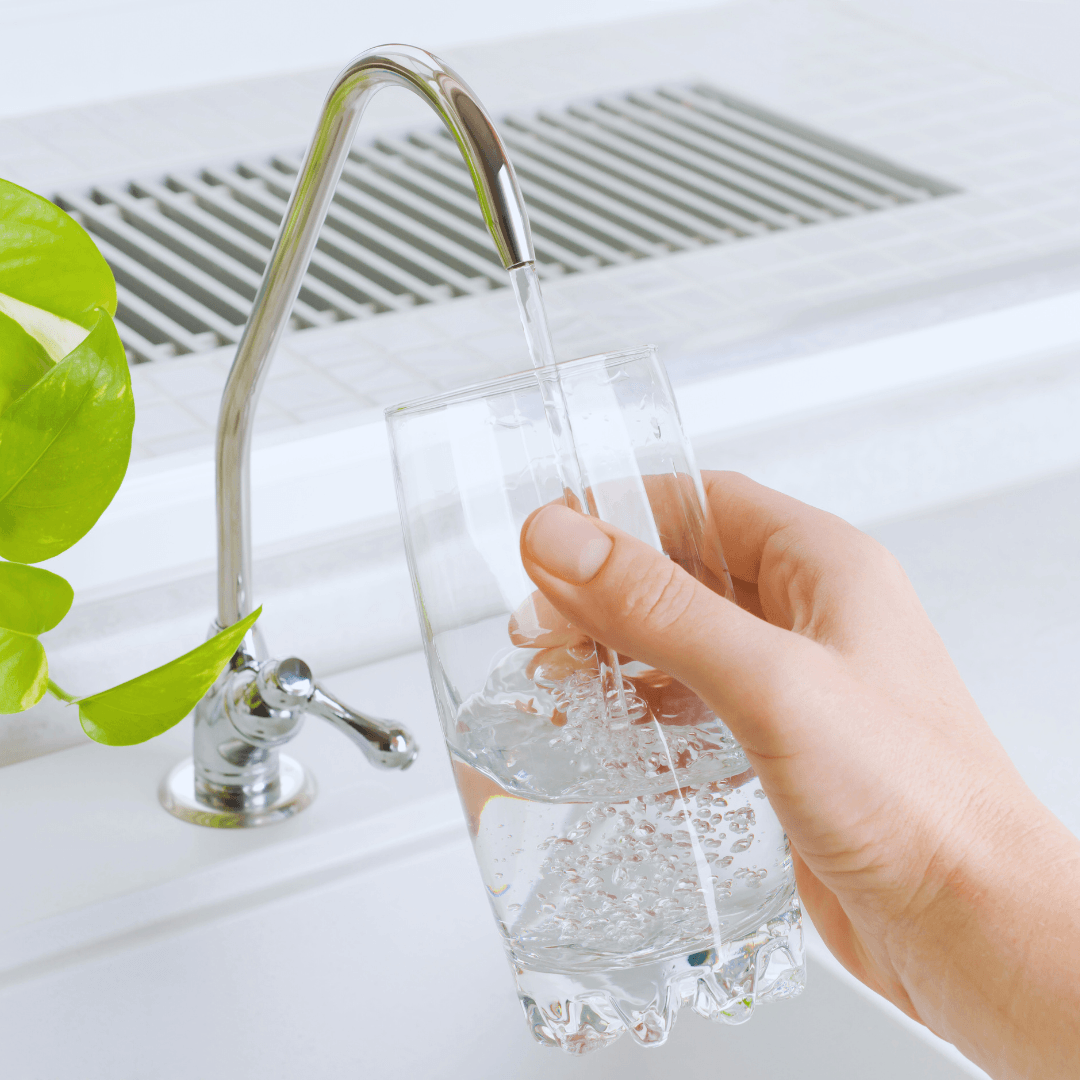
4. Filter Your Water
A water filter is crucial for reducing exposure to contaminants commonly found in tap water, such as chlorine, lead, pesticides, and industrial pollutants.
These substances can affect the taste and safety of drinking water, potentially posing health risks over time.
A water filter removes or reduces these contaminants, improving the quality and purity of the water you consume and use for cooking.
This is particularly important for vulnerable groups, such as youngsters, expecting moms, and individuals with compromised immune systems.
Water filters come in various types, including pitcher, faucet-mounted, countertop, and under-sink filters. Each offers different levels of filtration based on your specific needs and water quality concerns.
Investing in a water filter system allows you to enjoy clean, better-tasting water while minimizing exposure to harmful substances, promoting hydration and overall health for yourself and your family.
5. Detox Your Home
Detoxifying your home involves improving indoor air quality and reducing exposure to pollutants affecting respiratory health and overall well-being.
Ensure enough ventilation throughout your house, especially in the kitchen, bathroom, and other areas where moisture can collect.
This lessens the build-up of indoor contaminants such as paints, furnishings, and cleaning supplies' volatile organic compounds (VOCs).
Air purifiers equipped with HEPA filters can eliminate airborne particles like dust, pollen, pet dander, and mould spores to improve air quality.
Additionally, eliminating sources of indoor pollution such as tobacco smoke, excessive use of synthetic fragrances, and controlling moisture to prevent mould growth are essential steps in creating a healthier indoor environment.
Regular maintenance and thoughtful choices in household products contribute to maintaining a clean and toxin-free home environment.

6. Support Sustainable Practices
Supporting sustainable practices involves consciously selecting products and companies, prioritizing ethical sourcing, environmental stewardship, and sustainable manufacturing processes.
By choosing products made from renewable resources, recycled materials, or those that minimize environmental impact during production and disposal, you contribute to reducing your ecological footprint.
Sustainable companies often adhere to fair labour practices, ensuring workers receive fair wages and operate safely.
Supporting such practices encourages businesses to adopt more environmentally friendly methods, promoting a shift towards a greener economy.
Look for certifications like Fair Trade, USDA Organic, or certifications from organizations promoting sustainable forestry or animal welfare standards.
By aligning your purchasing decisions with sustainability principles, you preserve natural resources, protect biodiversity, and mitigate climate change impacts.
This collective effort promotes a healthier planet and ensures a sustainable future for future generations.
7. Embrace Natural Beauty
Embracing natural beauty involves choosing skincare and cosmetic products that prioritize organic ingredients and avoid harmful chemicals such as parabens, phthalates, and synthetic fragrances.
These compounds can permeate the skin and result in allergies, inflammation, and long-term health effects.
Natural skincare products often use plant-based ingredients like botanical oils, herbal extracts, and essential oils, which provide nourishment and hydration without harsh additives.
Choosing natural beauty products supports healthier skin by reducing exposure to toxins that may disrupt the skin's natural balance and contribute to skin sensitivities.
Organic ingredients are typically grown without synthetic pesticides or fertilizers, promoting environmental sustainability and supporting ethical farming practices.
By choosing natural beauty alternatives, you not only enhance personal well-being but also contribute to a cleaner environment and encourage the beauty industry to prioritize safer, more sustainable practices for the benefit of consumers and the planet.

8. Mindful Eating
Mindful eating emphasizes selecting whole foods naturally and minimizing processed and packaged foods, often containing additives, preservatives, and artificial colours.
Nutrient-dense whole foods—fruits, vegetables, whole grains, and lean proteins—provide vital vitamins, minerals, and antioxidants without the additional chemicals seen in processed foods.
Switching to whole foods promotes balanced nutrition and lowers the intake of artificial additives that can aggravate conditions, including obesity, diabetes, and cardiovascular disease.
Additionally, the fiber content of whole meals is generally higher, which facilitates satiety and digestion and helps maintain a healthy weight.
This strategy advances a more nutrient-dense food system, supports sustainable agriculture, and improves individual well-being.
9. Grow Your Own
Growing your herbs, vegetables, or fruits is a rewarding way to ensure access to fresh, pesticide-free produce right at home.
You can control the growing conditions by cultivating a garden outdoors or indoors and choosing organic methods to nurture your plants.
This reduces reliance on commercial pesticides and synthetic fertilizers that may contain harmful chemicals.
Homegrown produce is often richer in flavour and nutrients since it can be harvested at peak ripeness.
It also promotes sustainability by reducing food miles and packaging waste associated with store-bought produce.
Gardening can be a fulfilling activity that connects you with nature and provides a sense of accomplishment as you enjoy your labour's fruits (literally!).
Whether you have a small balcony, backyard space, or room for indoor pots, growing your food empowers you to eat fresher, healthier meals while contributing to a greener lifestyle and supporting local biodiversity.
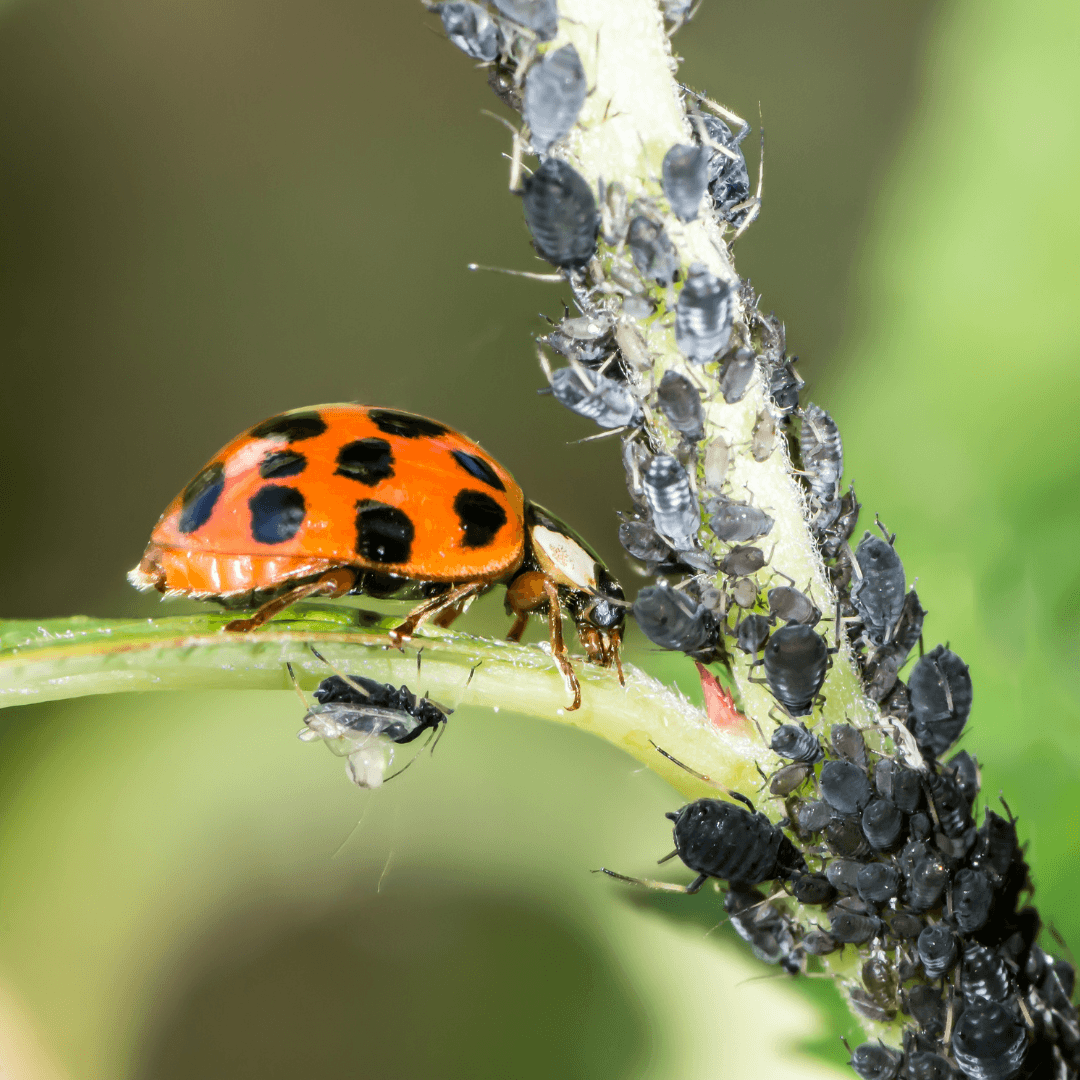
10. Use Natural Pest Control
Natural pest control methods involve using alternatives to chemical pesticides to manage pests in your home and garden.
Examples include diatomaceous earth, a fine powder that absorbs lipids from insects' waxy outer layer, causing dehydration and death.
Essential oils like neem, peppermint, or tea tree oil have repellent properties. They can deter pests such as ants, mosquitoes, and aphids without harming beneficial insects or posing risks to human health.
By using natural pest control methods, less dangerous chemicals are released into the environment, which can harm pets, animals, and aquatic resources.
These methods are often biodegradable and safer for children and pets, promoting a healthier living environment.
Implementing integrated pest management (IPM) techniques, which combine natural controls with preventive measures, helps maintain a balanced ecosystem in your home and garden while minimizing the need for harsh chemical treatments.
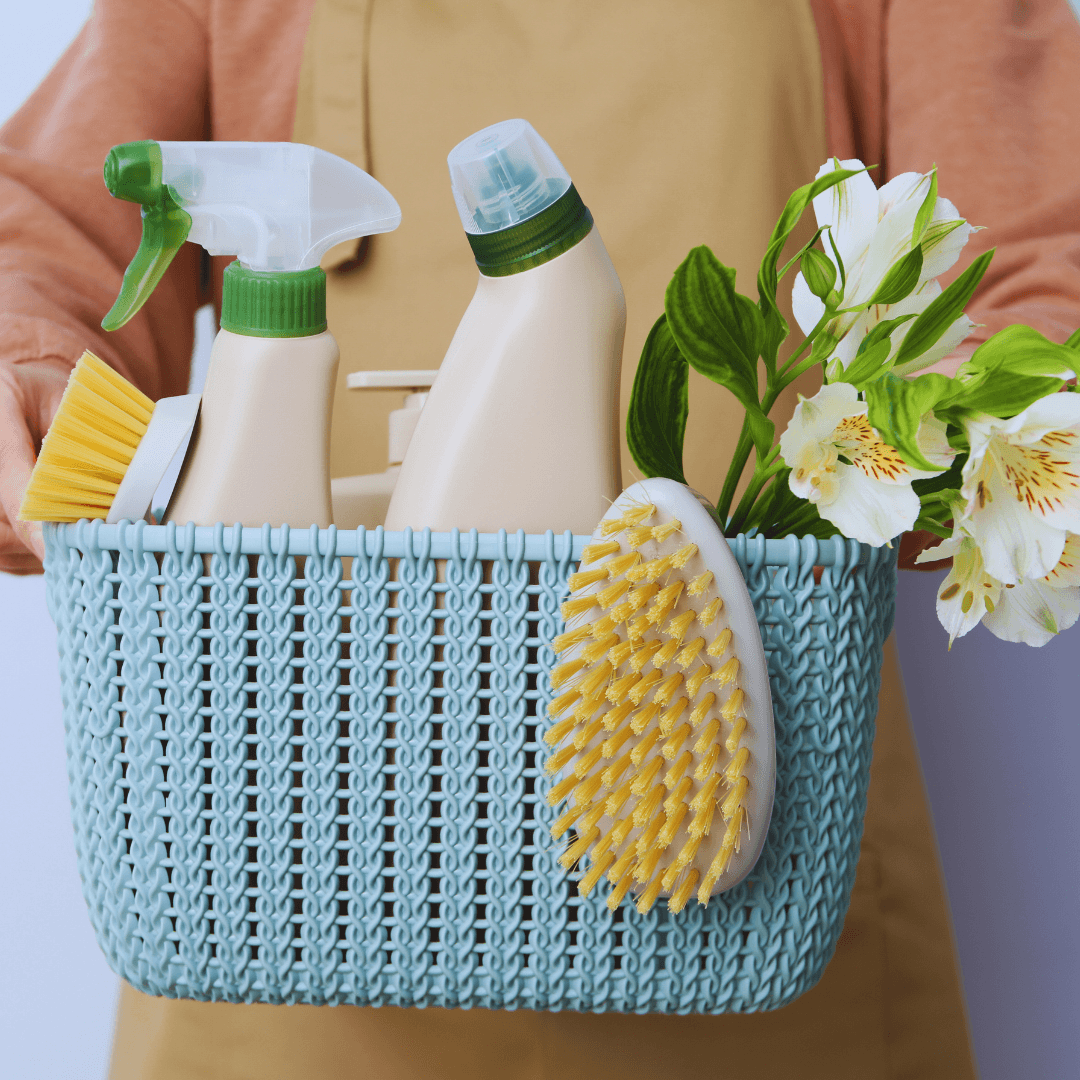
11. Green Cleaning
Making your cleaning solutions at home with natural components like baking soda, vinegar, and essential oils is known as green cleaning, as opposed to using harsh chemicals in commercial cleaners.
Vinegar, a natural acid, effectively cuts through grease and disinfects surfaces. Baking soda is a mild abrasive and deodorizer that works well for cleaning sinks, counters, and appliances.
Essential oils like lemon, tea tree, or lavender add pleasant scents and antibacterial properties to homemade cleaners.
These ingredients are safe and biodegradable, reducing exposure to synthetic chemicals that can harm human health and the environment.
Making your own cleaning products saves money and promotes sustainability by minimizing plastic waste from disposable cleaning containers.
It's a simple yet effective way to maintain a clean and healthy home while supporting eco-friendly practices, prioritizing personal well-being and environmental stewardship.
12. Educate Yourself And Others
Staying informed about the latest research on toxins is crucial for making informed health and lifestyle choices.
Environmental health studies continually reveal new insights into the sources and impacts of toxins in our daily lives.
Using reliable sources like scientific journals, health websites, and governmental organizations, you can avoid dangerous drugs and choose safer substitutes like organic foods and natural cleaning supplies.
Early awareness of toxins can help prevent health issues and promote long-term well-being.
Journals like Environmental Health Perspectives and resources such as the Environmental Working Group (EWG) and the CDC provide accessible information and practical tips while engaging with toxin-free living communities, offering support and shared knowledge.
Dedicate time to research to safeguard your health and contribute to a healthier environment.
FAQ
1. What Are Some Easy Swaps For Reducing Toxins In My Personal Care Routine?
Answer: Opt for natural and organic skincare, haircare, and makeup products. Avoid items with parabens, sulphates, phthalates, and artificial fragrances.
2. How Can I Ensure The Food I Eat Is Free From Toxins?
Answer: Choose organic produce, avoid processed foods, read labels carefully, and incorporate more whole foods into your diet.
3. Are There Specific Ingredients I Should Avoid In Household Products?
Answer: Avoid products containing ammonia, chlorine, formaldehyde, and synthetic fragrances. Look for eco-friendly alternatives.
4. How Can I Purify The Air In My Home Naturally?
Answer: Use houseplants known for their air-purifying properties, such as spider plants and peace lilies, and consider using a high-quality air purifier.
5. What Are Some Natural Alternatives To Plastic Containers?
Answer: Switch to glass, stainless steel, or silicone containers for food storage to avoid chemicals like BPA and phthalates found in plastic.
6. How Can I Reduce Toxins In My Water Supply?
Answer: To ensure safe drinking water, use water filters, avoid bottled water, and regularly check local water quality reports.
7. Is It Expensive To Live A Toxin-Free Life?
Answer: While some natural and organic products may be pricier, many cost-effective options are available. Initially, set up money and priorities for the biggest improvements.
Conclusion
Living a toxin-free life is a continuous journey that requires conscious decisions and mindful practices.
Choosing natural products, eating organic foods, and reducing exposure to harmful chemicals can lead to a healthier, more vibrant life. Commit to these changes and enjoy the lasting benefits of a cleaner lifestyle.
I trust you enjoyed this article, How To Live A Toxin-Free Life. Please stay tuned for more blog posts soon. Take care!
JeannetteZ
>>>Please click here to read my all-inclusive article about A Comprehensive Guide To Healing Naturally<<<
>>>Are you interested in Natural Healing through Herbs? Please click here for my #1 Recommendation<<<
Your Opinion Is Important To Me
Do you have thoughts, ideas, or questions? I would love to hear from you. Please leave me your questions, experiences, and remarks about this article, How To Live A Toxin-Free Life, in the comments section below. You can also email me at Jeannette@Close-To-Nature.org.
Disclosure
This post may contain affiliate links. As an Amazon Associate and other affiliate programs, I earn from qualifying purchases at no extra cost to you. Please read my full affiliate disclosure.
You might also enjoy these blog posts:
All About Lilies: Your Ultimate Guide!
Best Types Of Lily Plants For Your Garden
Blossoms Of Wellness: Embracing Flowers For Healing
Ultimate Guide To Companion Plants For Garlic
The Beginner's Feijoa Growing Guide
Best Ways To Grow Jackfruit From Seeds: A Step-By-Step Guide



